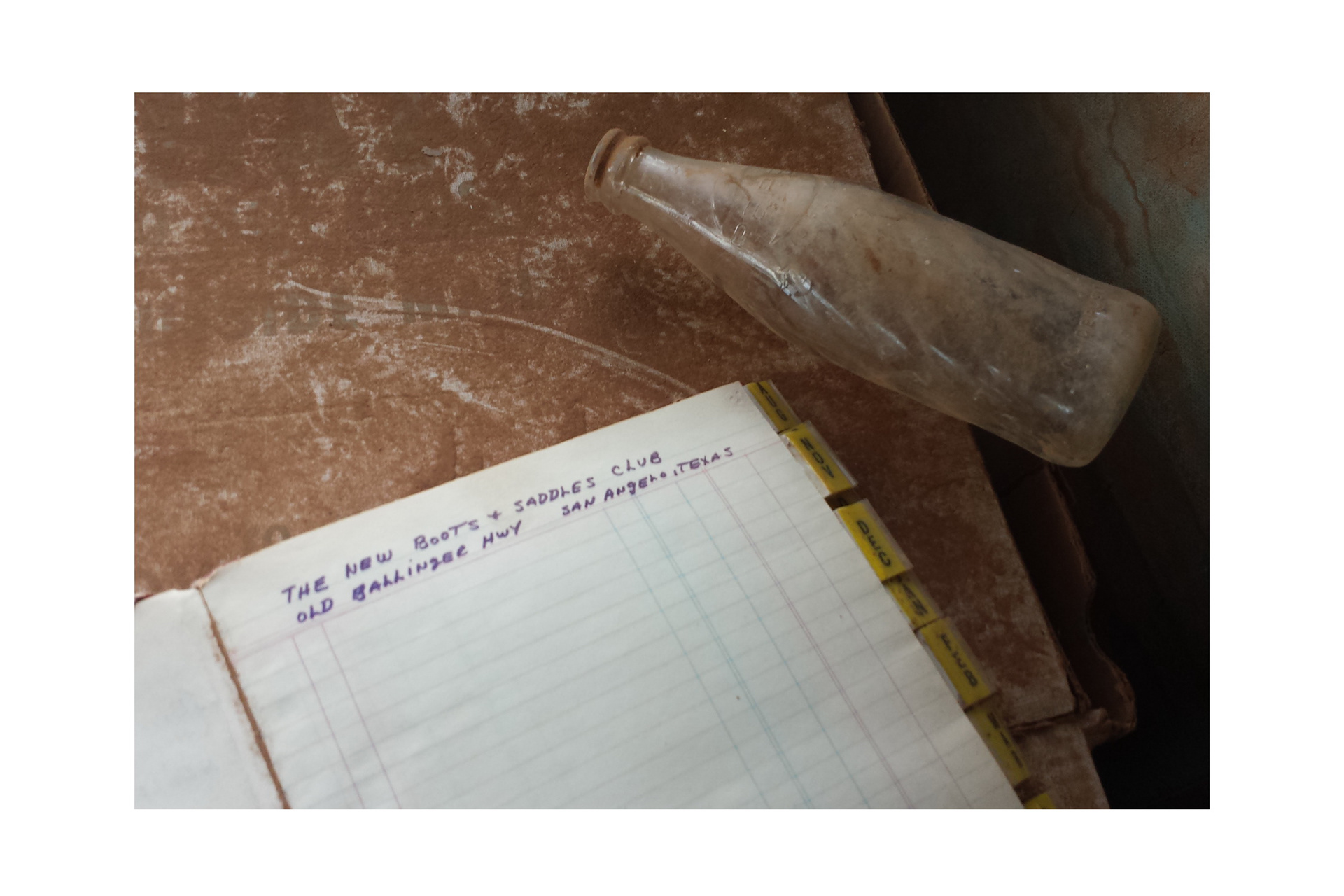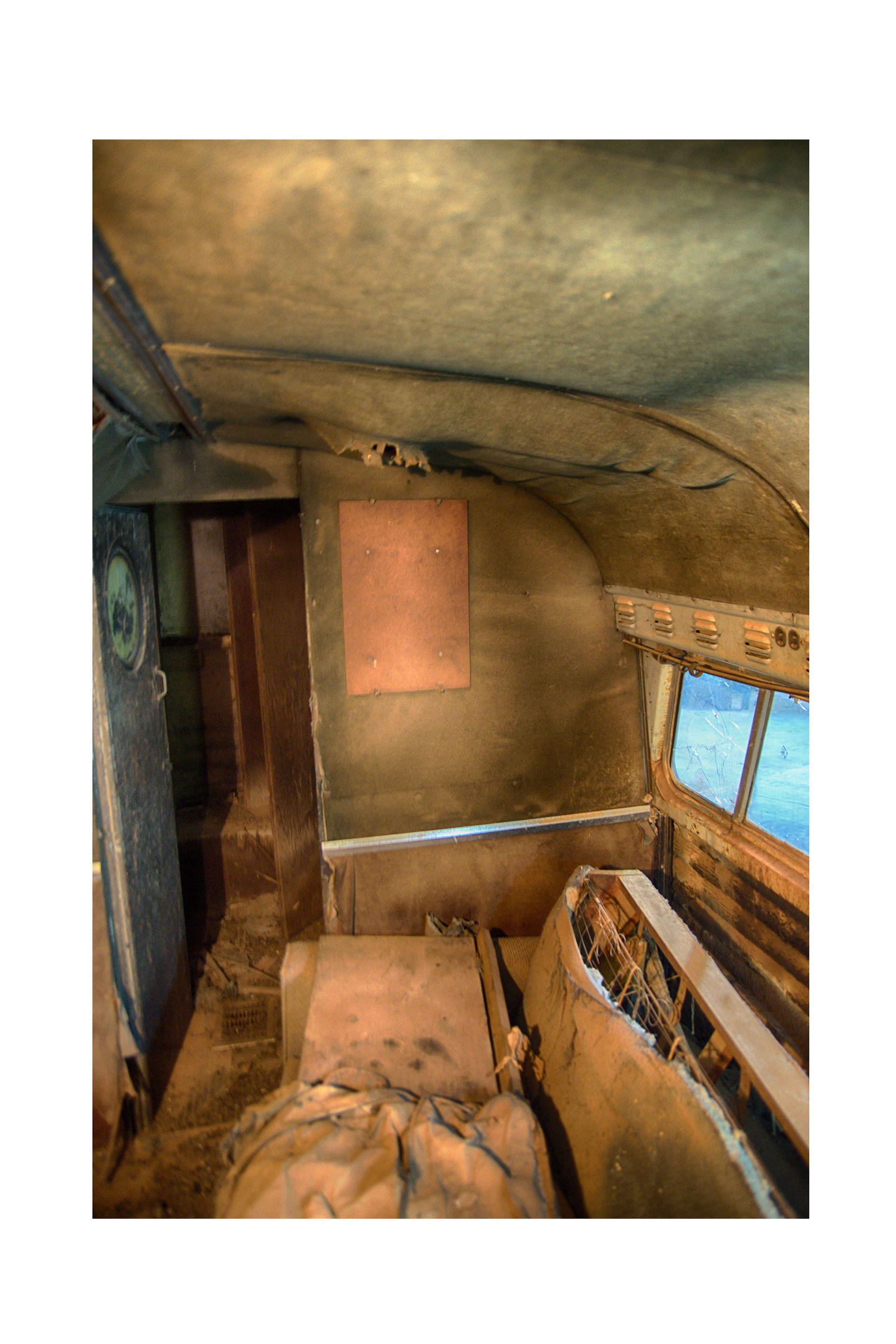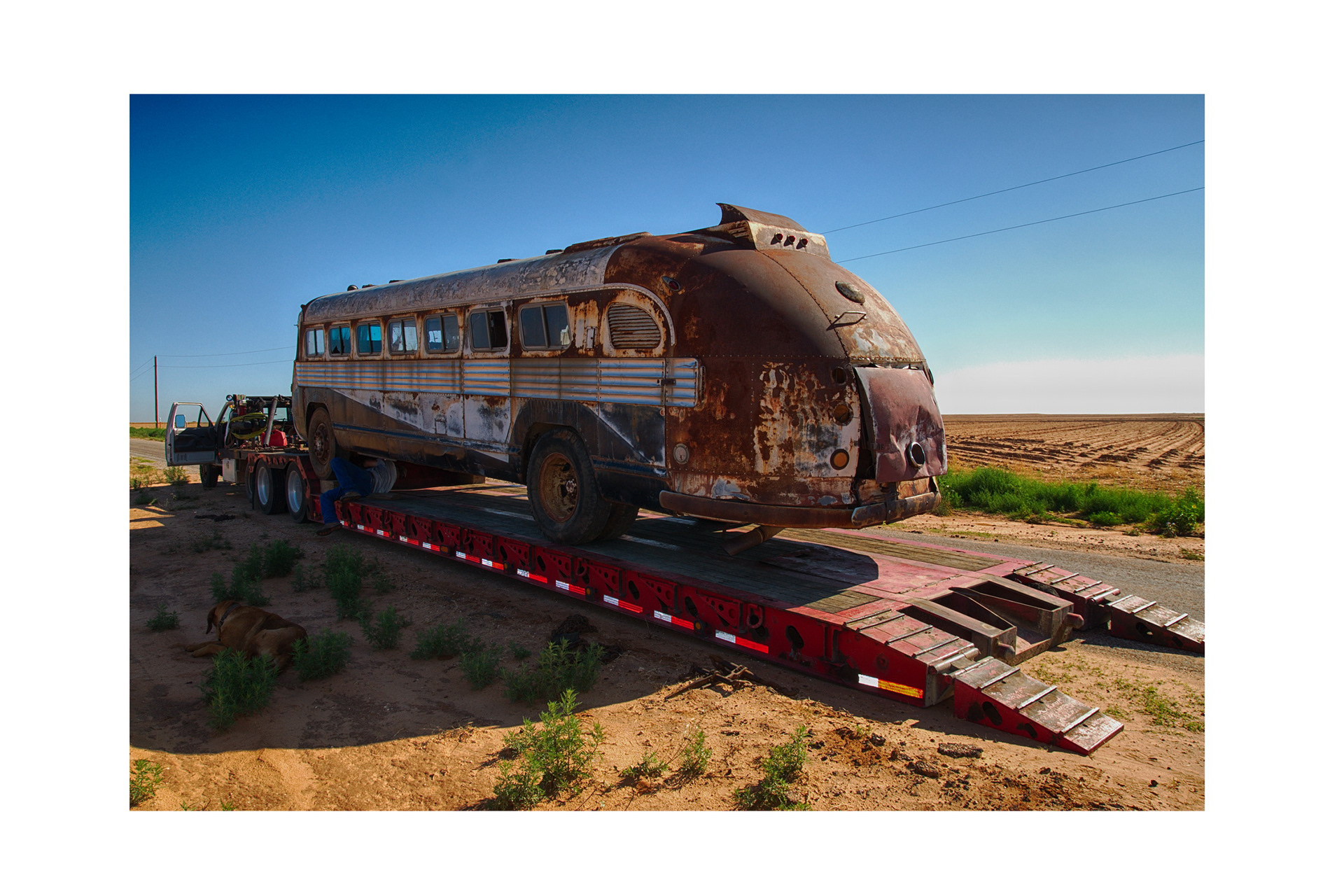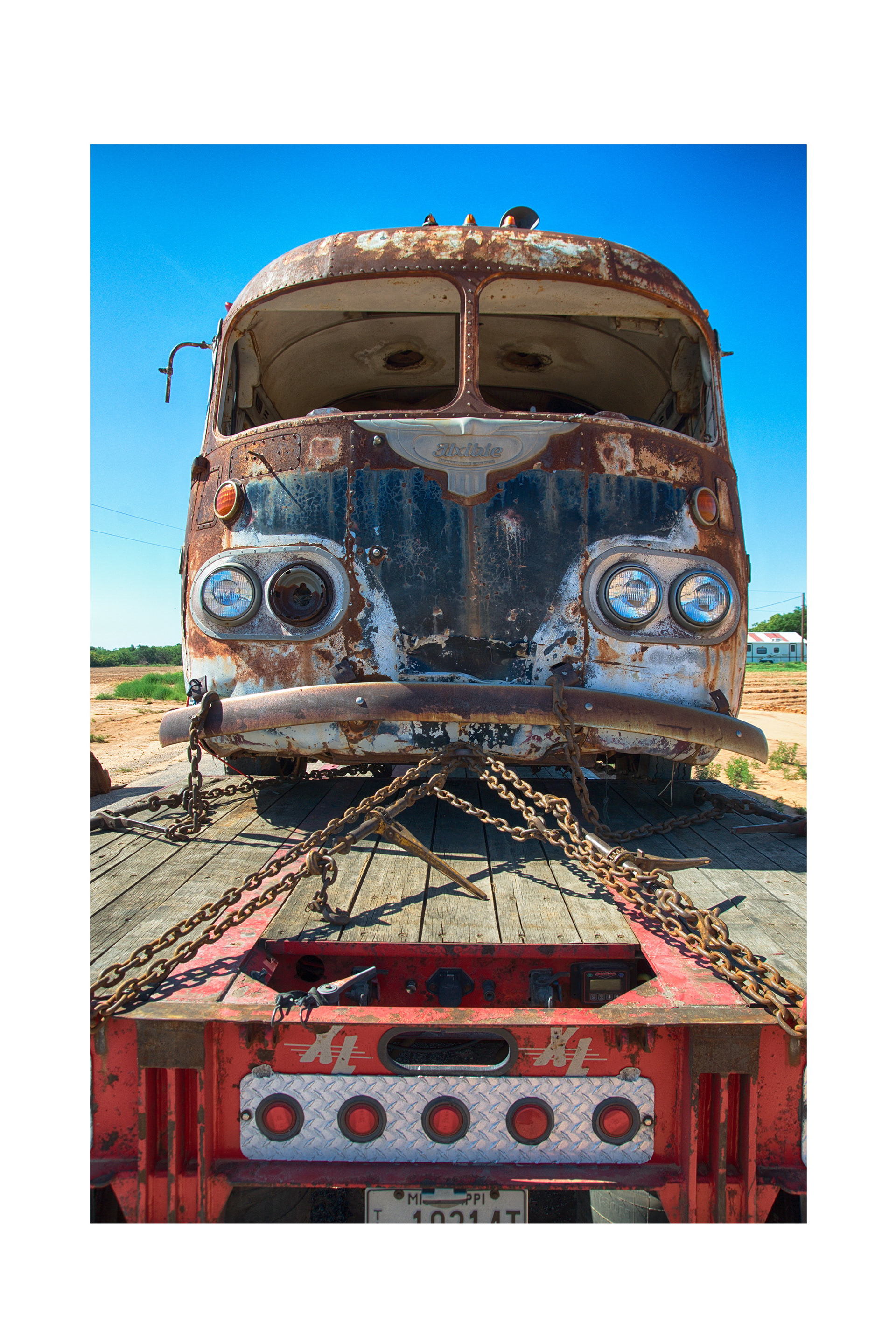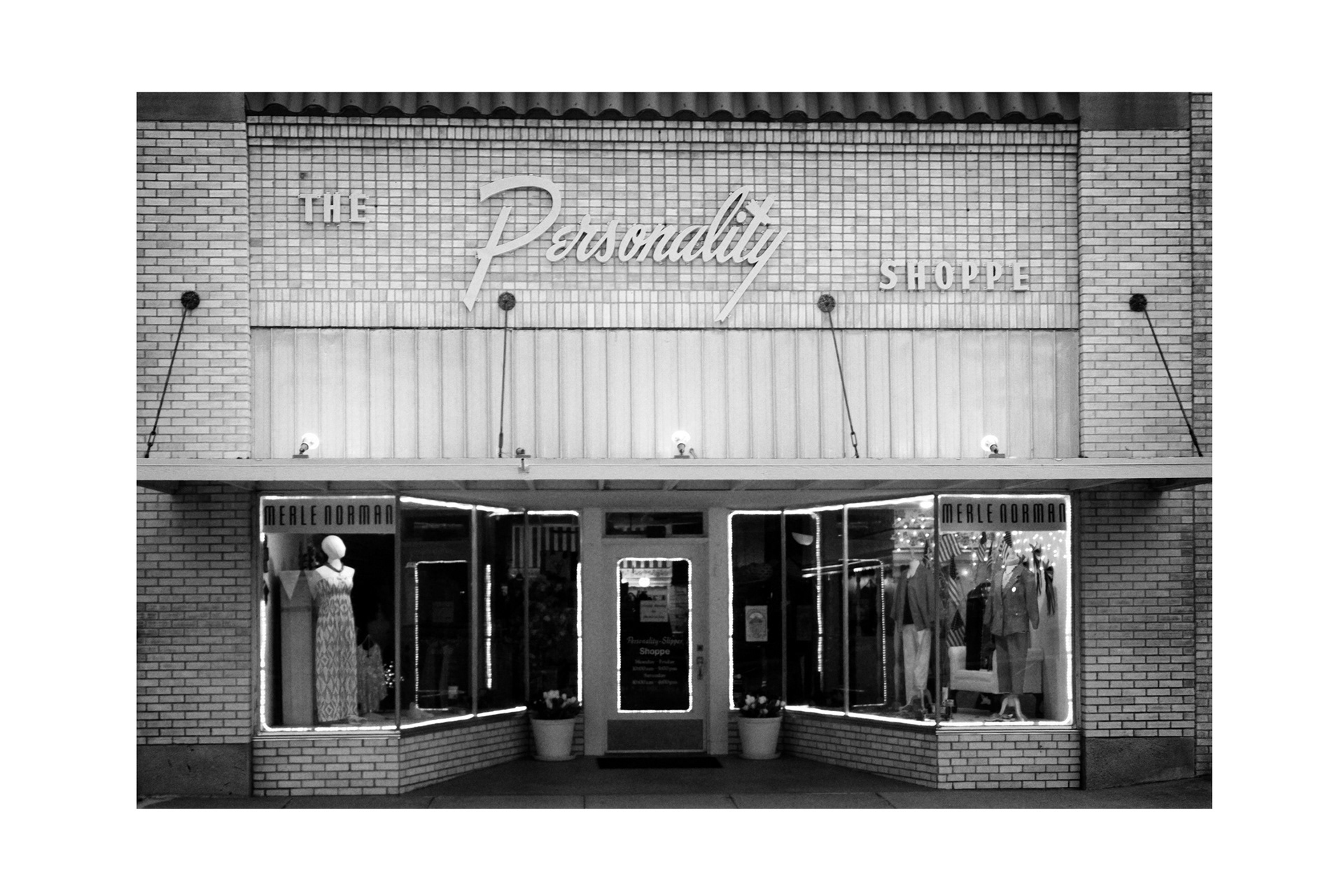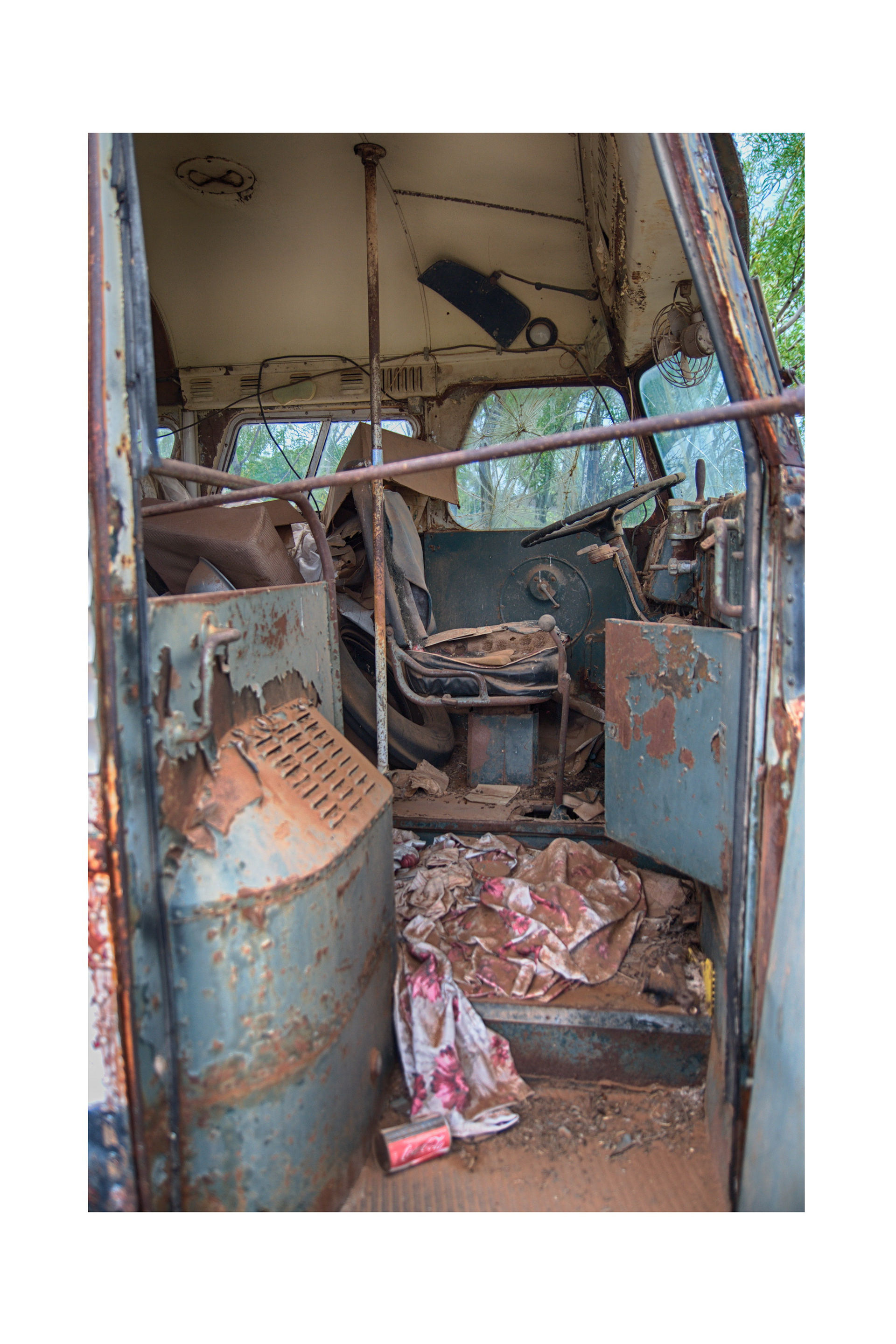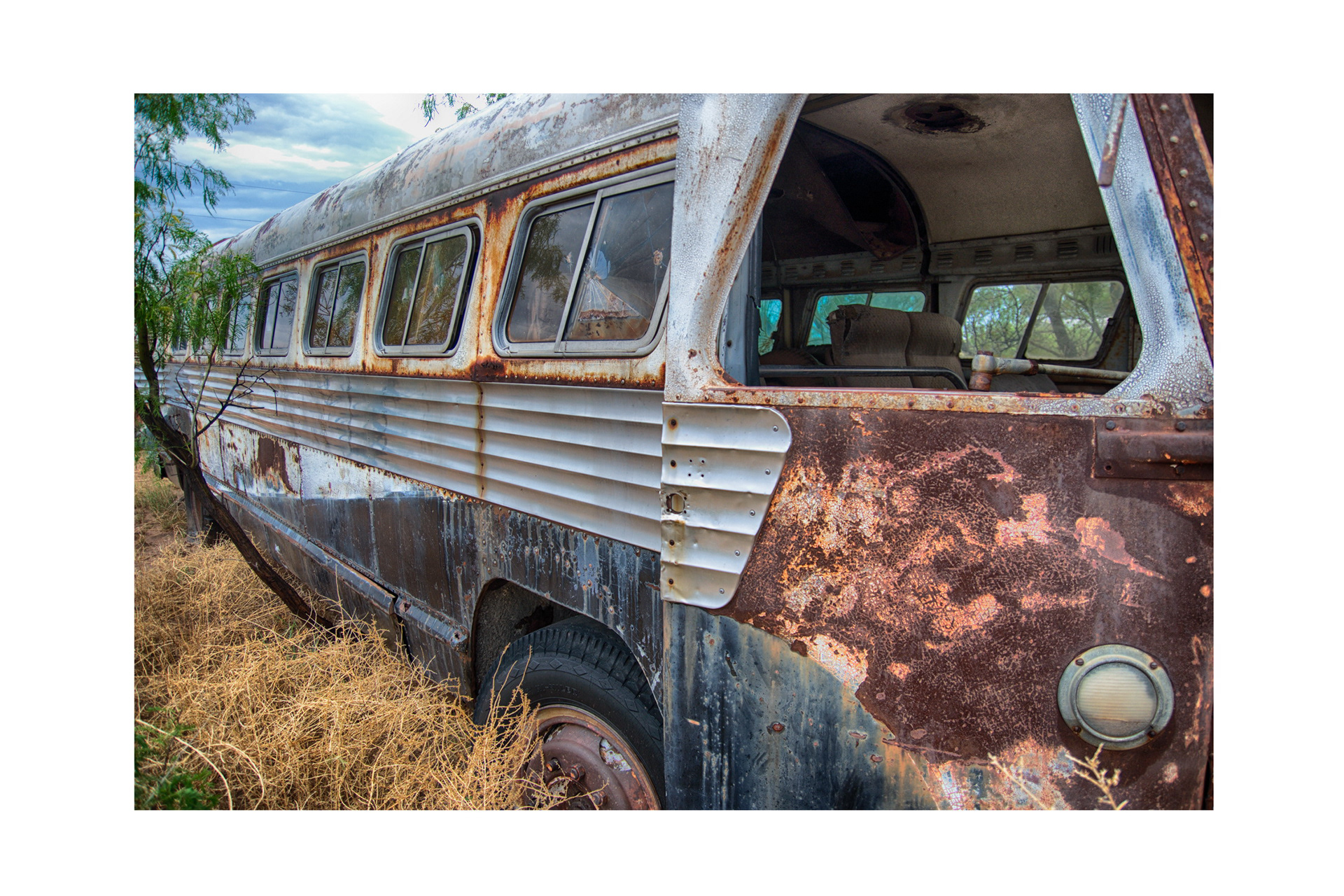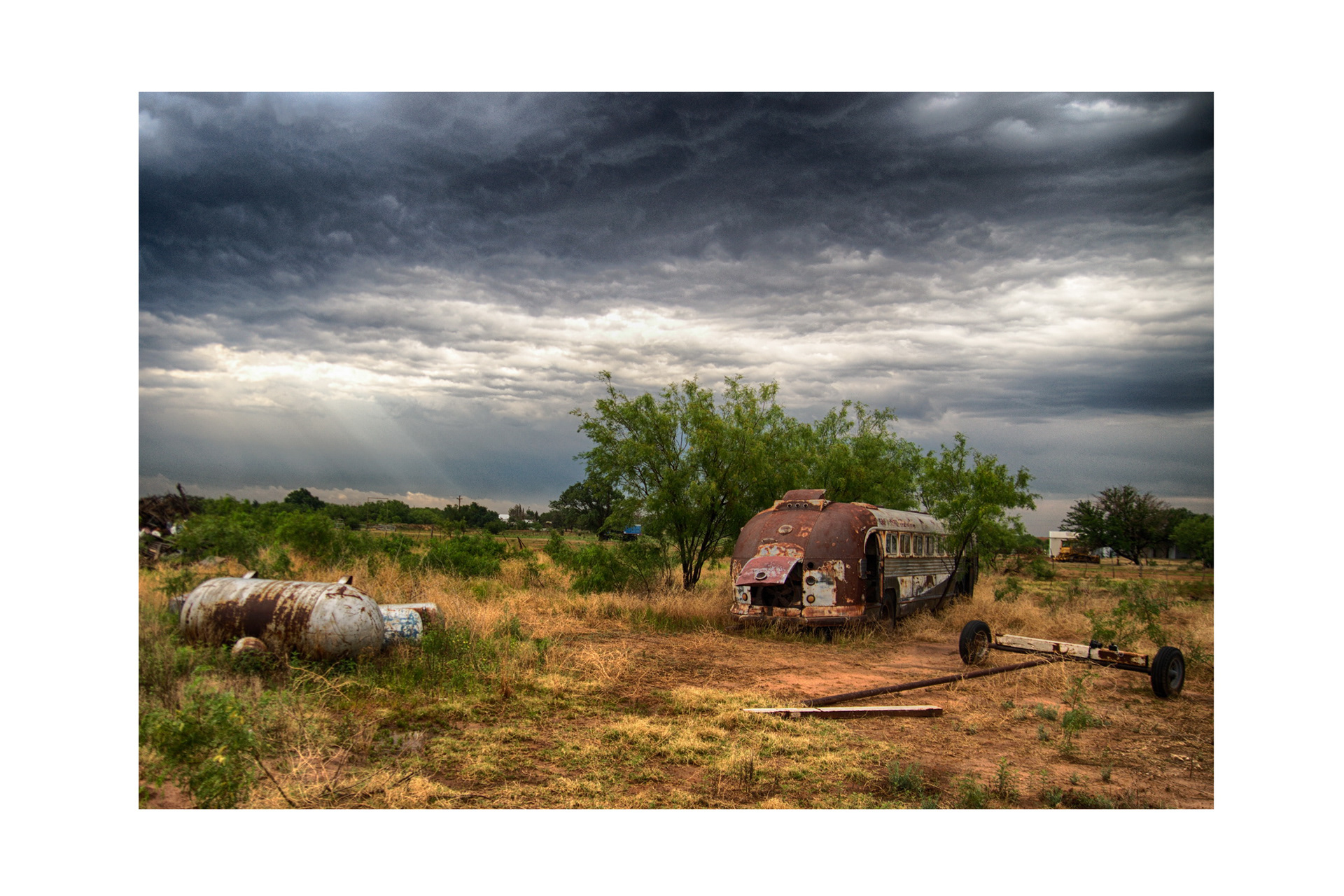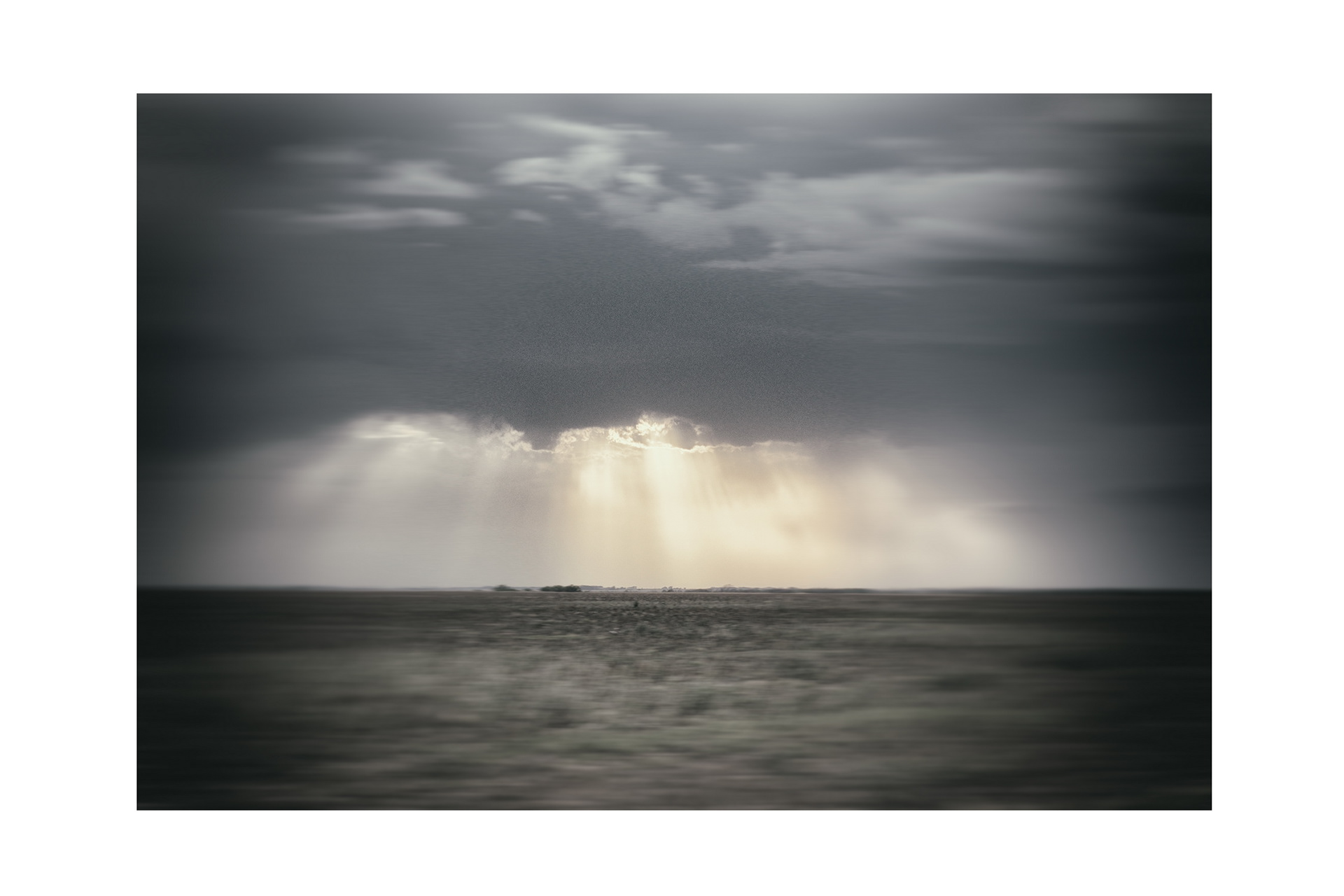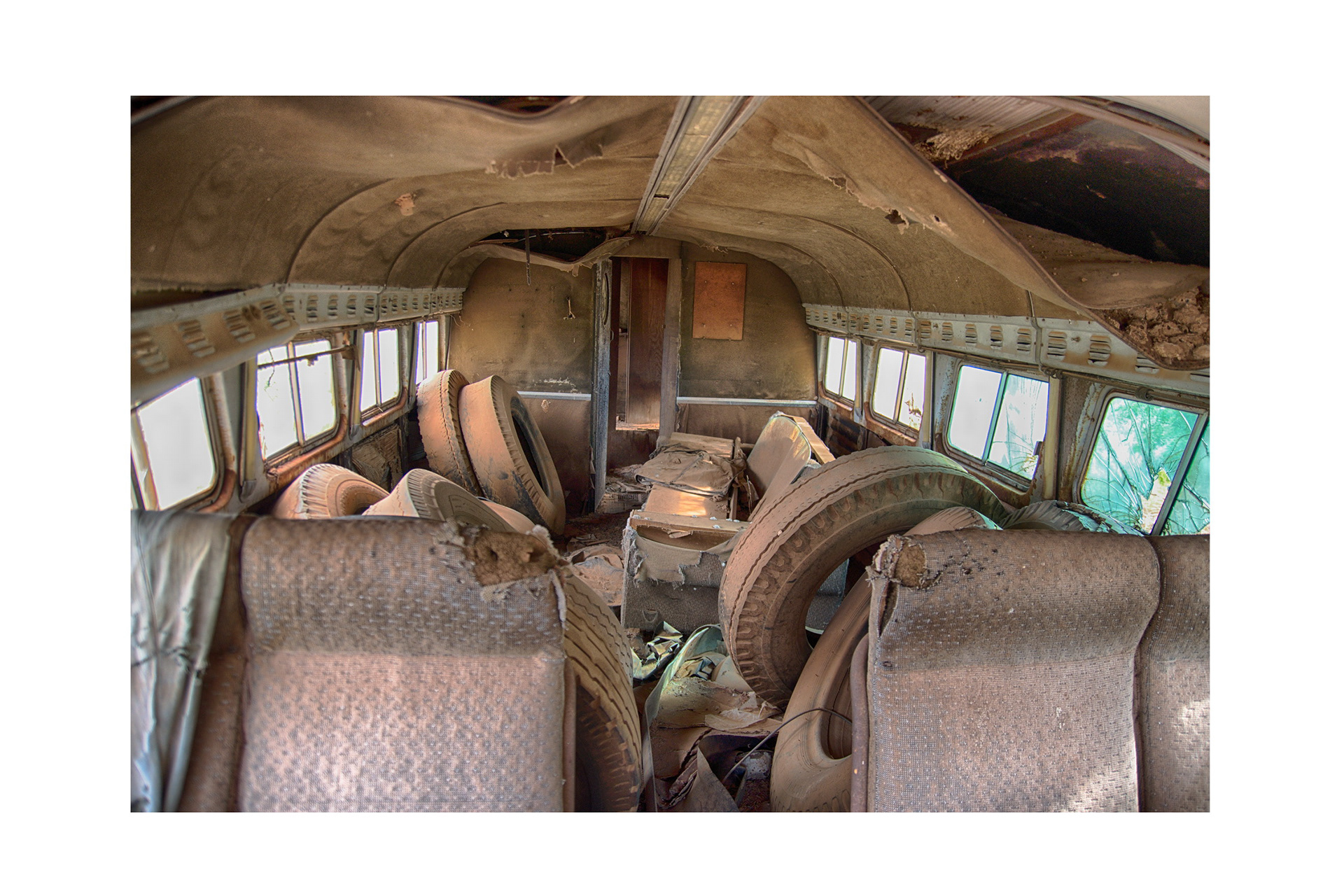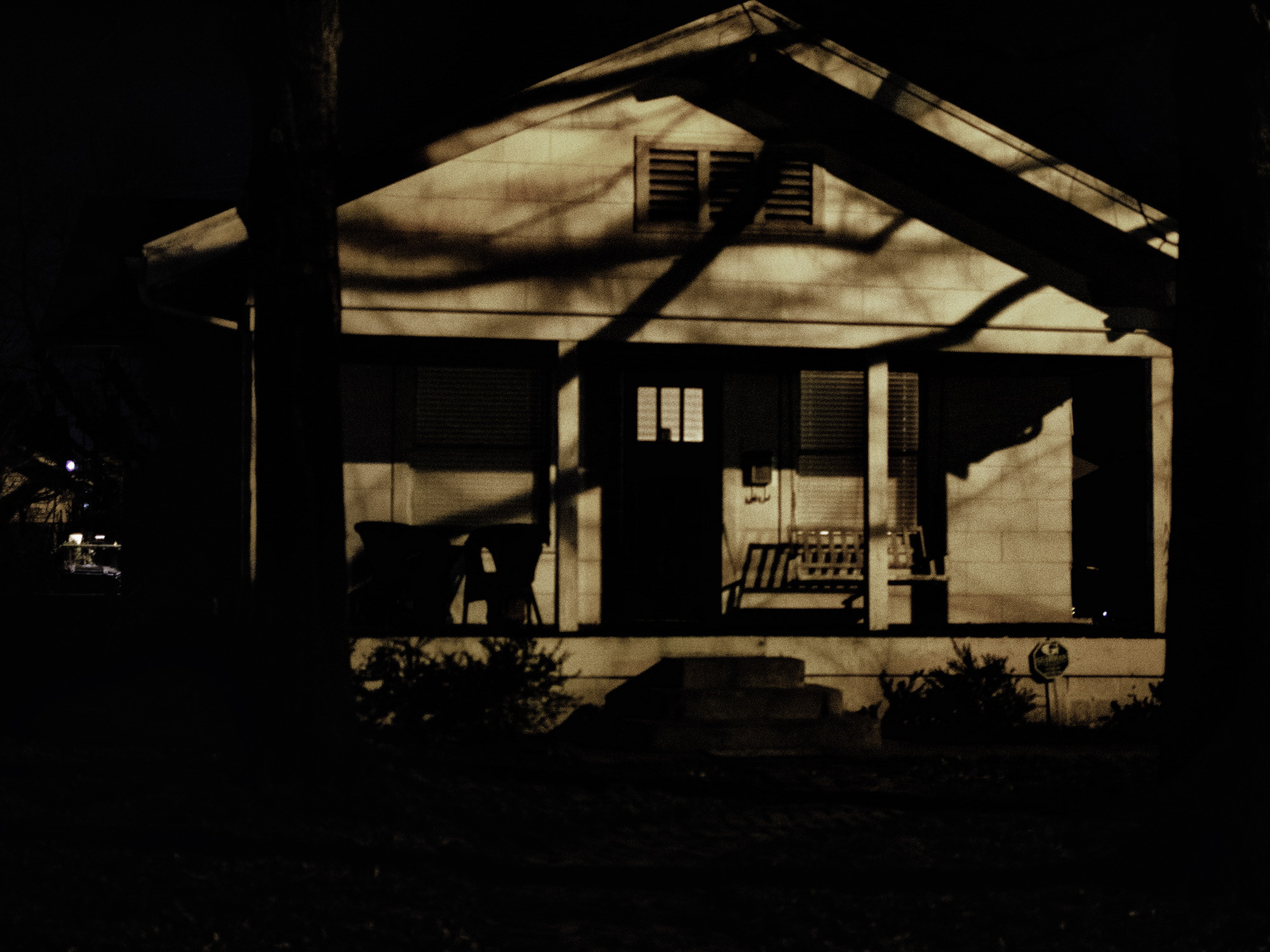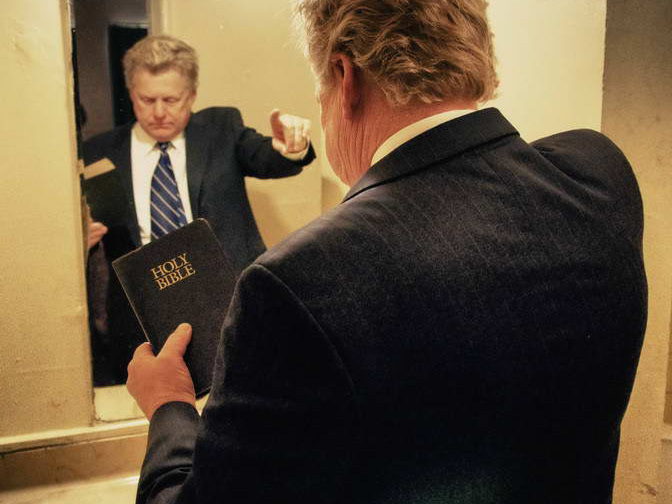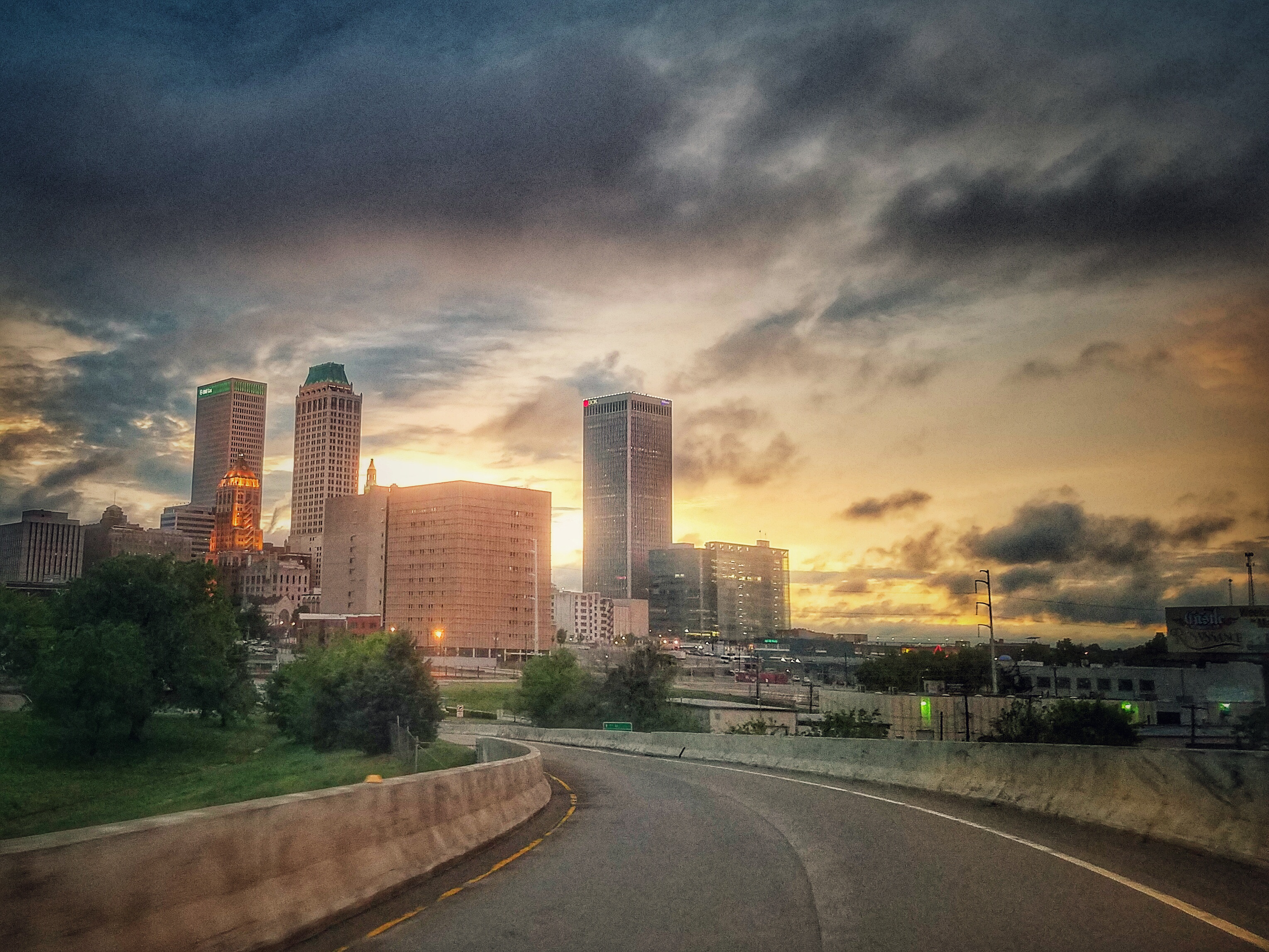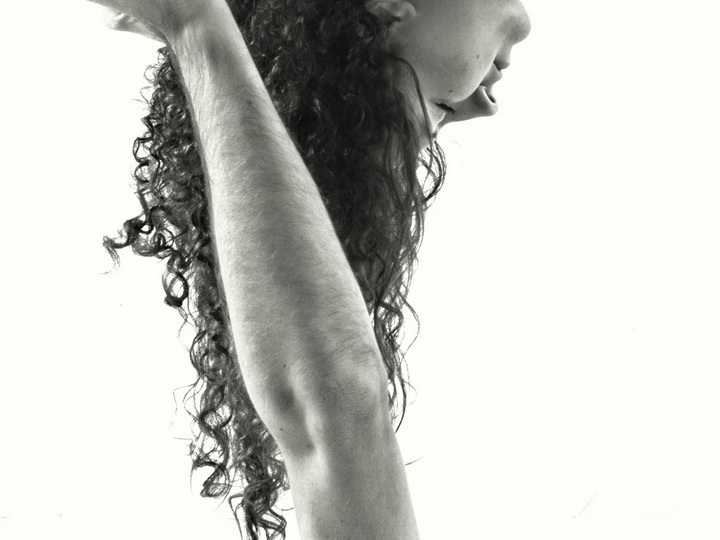Lee Roy Chapman called me up a few years back. To contextualize it, I should say that whenever he rang my phone in the middle of the night, I always answered it against my better judgment. “Hey, Marcos [Matheos] and I found Bob Wills’ old tour bus in West Texas. I’m going down to try and bring it back. Do you want to come along?” he blurted out- which I knew was really his way of making sure he had a ride. But how could I say no?
Realizing that this was not only a photo opportunity, but a chance to visit the area my family is from, I gassed up and we hit the road. First, as with any important project we ever did together, Lee and I took a bunch of speed, which is ironic, since everything we ended up photographing was so slow, hanging in the air like pipe smoke just before it dissipates.
We stopped in a number of small towns, most notably Archer City, where local Larry McMurtry wrote The Last Picture Show and still runs a bookstore. That particular town had a strange effect on both Lee Roy and me, because we felt strangely comfortable there, like we’d come home to a place we’d never lived. Spiritually, it seemed almost like our genetic pasts were speaking to us, and from that point on, we carried on like brothers rediscovering together a part of the world, maybe a part of ourselves, that was at once alive as well as passing away.
And when we pulled out of Archer, that feeling never lifted. If anything, it only increased the farther south and west the road took us. Everything we saw for the rest of that trip- crumbling rural communities trying to stay alive, deteriorating roads, old women sharing gossip at the local Dairy Queen, boarded up juke joints, tobacco stores, clothing boutiques selling yesterday’s wares, pay phones, one-man police stations that also looked closed- stood as last vestiges to some other time.
Amid the rural decay, Lee Roy and I were ironically feeling ourselves come alive. Maybe it was the speed; maybe it was exhaustion, but we sang, smoked cigars, and laughed the whole damned way. When we finally reached Big Spring, TX, where Marc and Lee Roy had uncovered Bob Wills’ old bus just rusting in a field in the middle of nowhere, I realized I was home, and he was pretty close to his own roots. My grandfather, a hard drinking roughneck, had lived and died in Big Spring. I was never allowed to be around him as a kid because of his hardened, violent ways. The few times I was around him, what I noticed was a thick, terrifying silence and his giant hands. I always wondered if he’d just kill me right there, but he never did lay a hand on me or anybody as far as I could see, and Big Spring was just about the only place in the world where he fit in. Somehow, I felt like I fit in there too.
So all of this homecoming to the rougher sides of myself fed into the angles, lighting, and images I took, as did my deepening bond with one of the only brothers I’ve ever had who understood me, and I him. When I saw the dilapidated bus sitting there untended, it brought up memories of my mother, what I knew about her childhood, and what their lives had been like. It made me think of all the hard times and the good times that they endured in this place. This was no romanticized vision. This was the emotional ecosystem that was passed on to me: good, bad, whatever. And I never truly understood or made peace with it all until I saw Bob Wills’ bus rusting in that field.
I’ll never be one of those people who says, Remember the good old days

